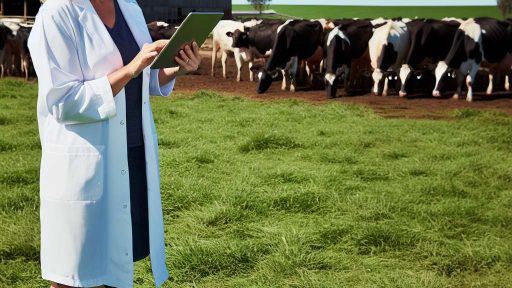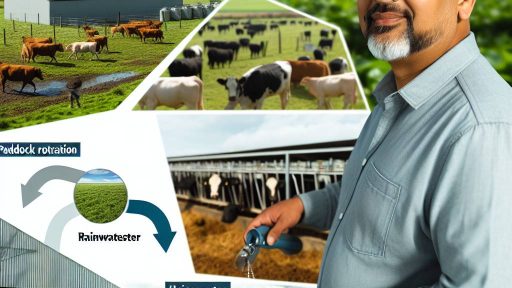Livestock Management
Advanced Livestock Management: Enhancing Productivity and Welfare
In the realm of agriculture, effective livestock management is crucial for maximizing productivity while ensuring animal welfare.
Modern techniques and technologies have revolutionized how farmers care for their animals, leading to more sustainable and efficient practices.
This guide delves into the principles of advanced livestock management, offering insights into best practices for caring for animals, optimizing production, and maintaining the health of the herd or flock.
Key Aspects of Livestock Management
Nutrition and Feeding
- Optimize Diets: Tailor feeding strategies to meet the nutritional needs of different livestock species and stages of growth.
- Monitor Intake: Regularly assess and adjust feed quantities to prevent over or underfeeding.
Health and Welfare
- Regular Health Checks: Conduct routine examinations to detect and treat health issues early.
- Vaccination Programs: Implement vaccination schedules to prevent outbreaks of diseases.
Breeding and Genetics
- Selective Breeding: Choose breeding stock based on desirable traits to improve herd quality.
- Genetic Testing: Utilize genetic testing to make informed breeding decisions and enhance genetic diversity.
Modern Technologies in Livestock Management
Precision Livestock Farming
- Monitor Animals: Use sensors and wearables to track health, movement, and behavior in real-time.
- Data Analysis: Analyze data collected to make informed management decisions.
Automated Feeding Systems
- Efficiency: Automate feeding to ensure timely delivery and reduce labor costs.
- Customization: Tailor feed to the specific requirements of individual animals or groups.
Climate-Controlled Housing
- Optimal Conditions: Maintain controlled environments to protect livestock from extreme weather and improve comfort.
- Air Quality Management: Ensure adequate ventilation to prevent respiratory issues.
Ethical Considerations and Sustainability
Animal Welfare
- Ethical Treatment: Prioritize the well-being of livestock through humane handling and living conditions.
- Enrichment: Provide opportunities for natural behaviors to promote psychological health.
Environmental Impact
- Manure Management: Implement systems to manage waste effectively and minimize environmental pollution.
- Sustainable Grazing: Practice rotational grazing to prevent overgrazing and protect soil health.
Challenges and Opportunities
Managing livestock comes with its set of challenges, from disease control to market fluctuations.
However, by embracing advanced management techniques and technologies, farmers can overcome these hurdles and find new opportunities for growth and sustainability.
Conclusion
Advanced livestock management combines traditional knowledge with modern innovations to enhance the productivity, health, and welfare of animals.
By focusing on nutrition, health care, breeding, and the integration of technology, farmers can ensure their livestock operations are both efficient and humane.
As the agricultural sector continues to evolve, adopting these practices will be key to achieving long-term success in livestock farming.









